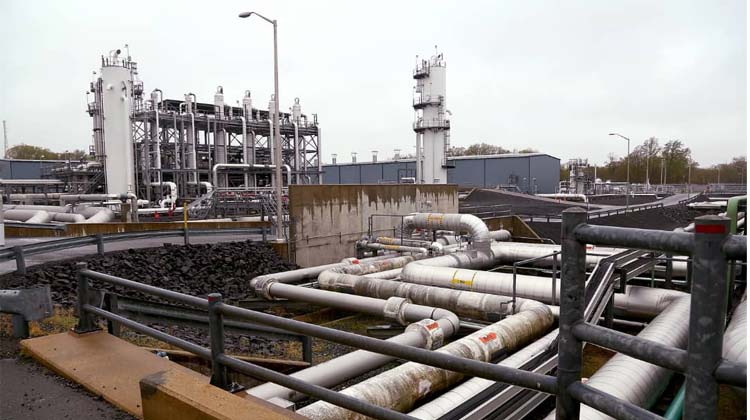The Crude Oil Refiners Association of Nigeria (CORAN) has vehemently criticized the Nigerian oil sector regulators for the persistent inability of its members to meet the nation’s domestic fuel supply needs. CORAN contends that the regulatory bodies, primarily the Nigerian Midstream and Downstream Petroleum Regulatory Authority (NMDPRA), have systematically failed to allocate sufficient crude oil to local refineries, hindering their operational capacity and forcing the country to rely heavily on imported refined petroleum products. While the NMDPRA has publicly stated that Nigeria consumes approximately 50 million litres of petrol daily, with local refineries contributing less than half of that amount, CORAN argues that this shortfall is not due to a lack of refining capacity, but rather a deliberate policy of prioritizing import licenses over domestic production. This preference for imports, according to CORAN, undermines the potential of the local refining sector and perpetuates Nigeria’s dependence on foreign fuel sources.
CORAN’s core argument centers on the lack of crude oil allocation to domestic refineries. The association asserts that for over six months, its members have not received a single barrel of crude oil through either the Domestic Crude Oil Supply Obligation (DSCO) framework or any other special arrangement. This prolonged absence of feedstock, they argue, renders it impossible for refineries to operate at their full potential and meet the country’s fuel demands. Furthermore, CORAN points to the irony of the government’s continued reliance on expensive fuel imports while simultaneously neglecting the readily available domestic refining capacity. They highlight the Petroleum Industry Act, which mandates crude producers to prioritize domestic supply before considering exports, a provision that CORAN claims is consistently ignored by the regulators. The association insists that the problem lies not in a scarcity of crude oil or an unwillingness of refineries to process it, but rather in the absence of a functional framework that facilitates the transfer of crude from producers to local refineries.
CORAN’s spokesperson, Eche Idoko, emphasized the urgent need for the NMDPRA to prioritize facilitating crude access for local refineries with the same zeal it demonstrates in issuing import licenses. He criticized the ineffectiveness of the DSCO guidelines, which were passed last year but have yet to result in any crude allocation to local refineries. Idoko described the DSCO framework as “unworkable” and called for immediate revisions to enable domestic refineries to access the crude they need. He stopped short of directly blaming the government, instead focusing his criticism on the regulators, whom he holds responsible for establishing a functional platform for local refineries to thrive. Idoko argued that without a clear and operational framework, crude producers are left with no mechanism to supply crude to refineries, effectively crippling the domestic refining sector.
CORAN’s call for accountability extends to the public, urging citizens to hold the NMDPRA responsible for the ongoing issues preventing local refineries from operating at their full potential. Idoko stressed that the NMDPRA must address the critical issue of feedstock access and establish a binding framework that facilitates the supply of crude to domestic refineries. He emphasized the need for transparency, urging the NMDPRA to publish detailed reports on crude allocations to refineries, including quantities and timelines. Without such transparency, CORAN argues, the NMDPRA’s claims of underperforming local refineries lack credibility. Idoko further underscored the economic absurdity of relying on expensive imports when domestic production is a viable and more cost-effective alternative. He challenged the NMDPRA to move beyond rhetoric about the negative impacts of imports and take concrete action to support domestic refining.
The association also highlighted the struggles faced by even the largest refinery in the country, the Dangote Refinery. Idoko pointed out that despite its massive capacity, the Dangote Refinery has encountered difficulties in securing the necessary arrangements with the government to access crude oil. He recalled that the refinery had publicly appealed to marketers to off-take products from its near-full storage tanks last year due to the significant gap in domestic refining capacity utilization. This, according to CORAN, further exposes the inconsistency between the regulators’ claims of underperforming refineries and the ground reality of refineries struggling to obtain crude feedstock. Idoko argued that if a refinery of Dangote’s scale faces challenges accessing crude, then the NMDPRA’s assertions about insufficient refining capacity are fundamentally flawed.
In conclusion, CORAN’s critique underscores a deep-seated disconnect between the regulatory framework governing the Nigerian oil sector and the operational realities faced by local refineries. The association’s allegations of preferential treatment for importers, coupled with the apparent ineffectiveness of the DSCO framework, paint a picture of a system that inadvertently hinders domestic refining capacity. The central demand from CORAN remains consistent: a transparent and functional framework that ensures a reliable supply of crude oil to local refineries. This, they argue, is the key to unlocking Nigeria’s refining potential, reducing reliance on costly fuel imports, and ultimately achieving self-sufficiency in petroleum product supply. The ongoing situation, as described by CORAN, raises serious questions about the effectiveness of current regulatory policies and the commitment to developing a robust and sustainable domestic refining sector.


